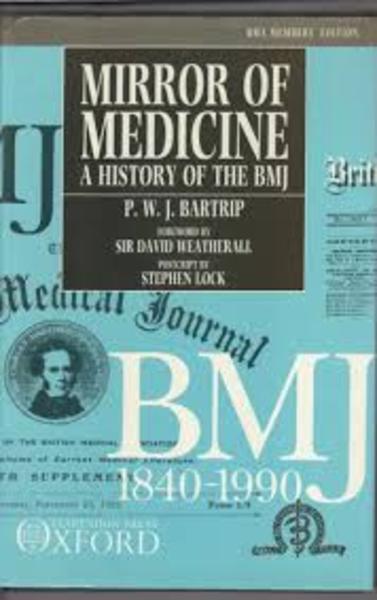The British Medical Journal was founded in 1840 as an independent weekly. Although it soon became the organ of the BMA, it experienced a precarious existence for many years. It was placed on a more successful basis by Ernest Hart who was editor for the last third of the 19th century. These were the BMJ’s golden years, with circulation soaring, advertising revenue pouring in, and the Journal carving out an enviable reputation. Hart’s successor Dawson Williams consolidated this position, but the inter-war years saw some decline in its standing, if not in its circulation. The Journal was resurrected by Hugh Clegg who was editor between 1947 and 1965. played a major role in health and medicine. It sets the BMJ in context, examining many key themes in the history of medical science and society, including public health, military medicine, quackery, sex and the birth of the NHS.
On front blank: Prev owner – BMJ Board Meeting April 1996
